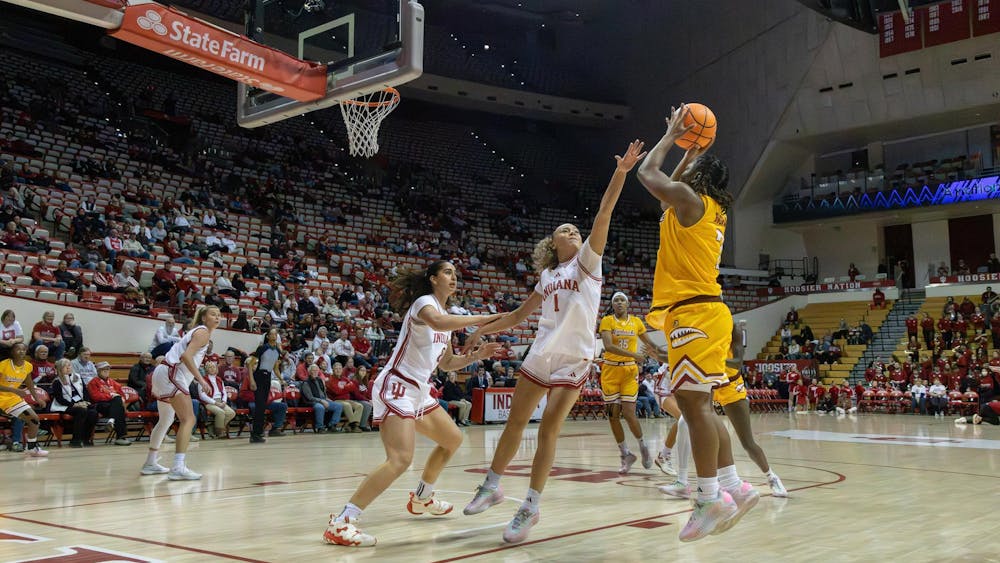Students come to IU for the numerous benefits of a large institution, receiving graduate degrees and learning from professionals and faculty.
However, recent studies show that Hoosier students are now making major contributions to the economy of the state of Indiana. Vital statistics gathered by the Indiana Business Research Center at the Kelley School of Business show their impact.
The research states that the total “economic footprint” that IU has on the state amounts to $4.6 billion annually, generating approximately $187 million in state and local taxes.
A range of statistics were used to estimate IU’s total civic contribution of nearly $16 million, from spending patterns to volunteer and service-learning activities and charitable contributions.
But to have accurate results with the IU Impact Study, the name of the research project, examinations were conducted involving the employment and economic significance of spending by the University, students and visitors.
Timothy Slaper, economic analysis director of the Indiana Business Research Center, said the estimates also consider the percentage of IU alumni who remain in the state and the amount of money that is collected by these Hoosiers in state taxes.
The research includes the contributions from the various regional campuses as well, including Kokomo and South Bend.
“Those who may go off to research labs or fame and fortune take with them the ‘Hoosier’ brand,” Slaper said. “They’re a part of the Hoosier fabric here.”
Jerry Conover, director of the Indiana Business Research Center, said economic impact studies are carried out to demonstrate where the government funding and tax dollars are being assigned and how the money is being spent on universities.
They also show the returns the government and citizens are gaining from their investments.
Conover said the research can now be used in legislative meetings when setting state budgets in the coming year and can show how universities are an “investment with more education and cultural impact.”
“I think this particular study went beyond the typical university study in terms of methodological rigor,” Conover said. “We tried to express things as much as possible in dollars and cents.”
Conover said exaggerations and inflation were avoided in a conservative matter through hard data and analyses.
In particular, Conover mentioned the benefits of the life sciences degrees received, in terms of economic impact and income, and the large differences in students’ incomes changing from associate to bachelor’s degrees.
With the extensive research conducted, Conover said the study “sets a benchmark for ethological rigor” among university studies, within the fairness of their examination.
Study finds IU generates billions in statewide ‘economic footprint
‘Benchmark’ research useful for state budget
Get stories like this in your inbox
Subscribe





